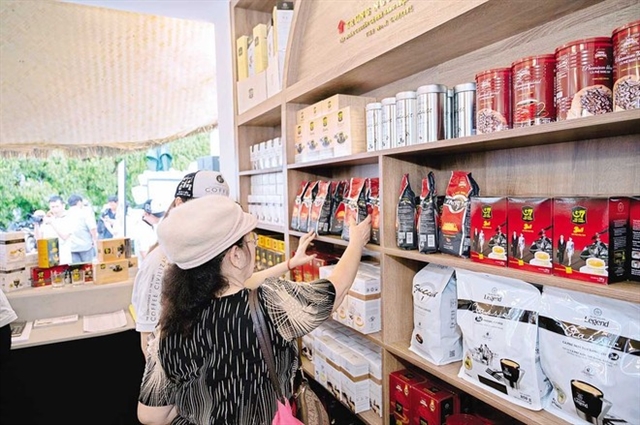Việt Nam targets increasing the exports of roasted and instant coffee and reach an export turnover to US$5-6 billion by 2030.

HÀ NỘI — In 2025, Việt Nam aims to increase coffee export turnover to US$8-10 billion, focusing on expanding markets for processed coffee and shifting to higher value chains.
According to the Vietnam Coffee and Cocoa Association (VICOFA), Vietnam targets increasing the exports of roasted and instant coffee and reach an export turnover to $5-6 billion by 2030.
The sharp increase in coffee prices over the past 30 years has been the main driving force for businesses to accelerate investment in technology and processing.
Currently, many coffee businesses, especially foreign-invested ones, are stepping up investment in building coffee processing plants in Việt Nam. According to them, self-control in production is a way to control quality and enhance competitive advantage when participating deeply in the global supply chain.
Meanwhile, domestic enterprises are also investing heavily in new factories. Last April, Nestlé Việt Nam announced an investment of nearly VNĐ1.9 trillion (nearly $73 million) to expand its Nestlé Tri An factory in the southern province of Đồng Nai, bringing Nestlé's total investment capital in Việt Nam to more than VNĐ20 trillion.
Trung Nguyên Legend Group has just started construction of a coffee factory in Buôn Ma Thuật City in the Central Highland province of Đắk Lắk, with a total investment of more than VNĐ2 trillion. This is the 5th factory in Trung Nguyên Legend's system in Việt Nam and the 2nd factory in Đắk Lắk.
The group identifies that this project plays a special role in shaping the Vietnamese coffee industry when participating in the deep processing and refined processing chain, creating high value.
Meanwhile, Highlands Coffee has inaugurated a roasting factory in the southern province of Bà Rịa - Vũng Tàu, with an investment capital of VNĐ500 billion and a capacity of 75,000 tonnes annually. The factory applies German technology, meeting international standards of quality.
Meanwhile, Phúc Sinh Joint Stock Company is also preparing to start construction on a VNĐ500 billion factory.
Phan Minh Thông, Chairman of the company, said that the new factory, expected to start operations in 2026, will apply high-end processing standards to directly access the European and Japanese markets.
Intimex Group, which is usually ranked in the top three coffee exporters, has been fully operating its instant coffee factory in the southern province of Bình Dương, producing 4,000 tonnes yearly.
However, it still fails to meet market demand. Thus, Intimex is preparing to invest in phase II, increasing the factory’s capacity to 8,000 tonnes yearly.
In 2024, Việt Nam’s processed coffee exports reached $1.18 billion. Among the types of exported coffee, processed coffee stood second, just after Robusta coffee with the export value of $4.18 billion. — VNS





